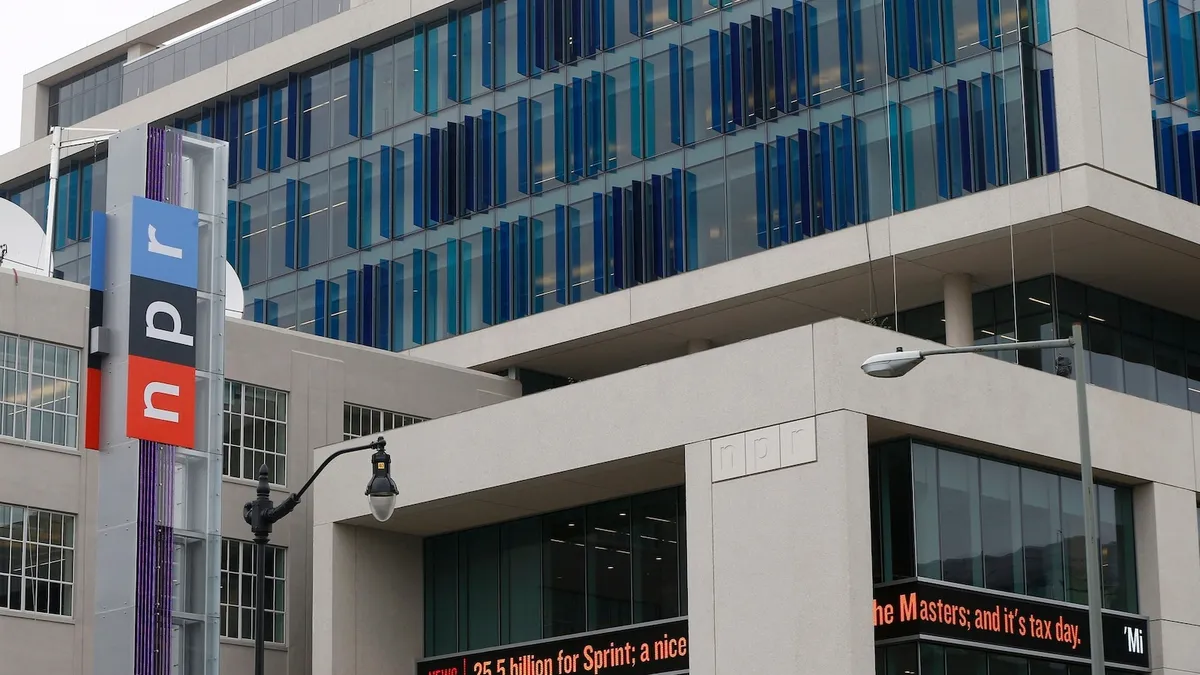
The Corporation for Public Broadcasting (CPB), the nonprofit organization responsible for overseeing National Public Radio (NPR) and the Public Broadcasting Service (PBS), has issued a strong response to President Donald Trump's recent executive order aimed at halting funding for these influential media outlets. The CPB emphasized that its funding is controlled by Congress, not the President, reinforcing its independence as a private nonprofit corporation.
Patricia Harrison, the president and CEO of the CPB, stated in a formal announcement, “CPB is not a federal executive agency subject to the President’s authority.” She highlighted that Congress established CPB with a clear directive to remain independent of federal government control. According to Harrison, “In creating CPB, Congress expressly forbade any department, agency, officer, or employee of the United States from exercising any direction, supervision, or control over educational television or radio broadcasting, or over CPB or any of its grantees or contractors.”
During his flight to Florida aboard Air Force One on Thursday, President Trump signed an executive order that mandates the CPB to stop direct funding to NPR and PBS. The order seeks to block federal funding to these organizations to the fullest extent permitted by law, as outlined in a fact sheet released by the White House. Additionally, the order prohibits local public radio and television stations, as well as other recipients of CPB funds, from using taxpayer dollars to support NPR and PBS.
The executive order instructs the CPB to revise its 2025 General Provisions to explicitly prevent both direct and indirect funding to NPR and PBS. It also requires all federal agencies to cease any direct or indirect financial support for these organizations and to review existing grants and contracts for compliance. Furthermore, the order directs the Federal Communications Commission (FCC) and relevant agencies to investigate allegations of unlawful discrimination by NPR and PBS.
The White House's fact sheet alleges that NPR and PBS have contributed to partisanship and disseminated left-wing propaganda using taxpayer dollars. In a recent House hearing, the leaders of PBS and NPR addressed concerns regarding their funding and alleged bias. NPR President and CEO Katherine Maher acknowledged the concerns, stating, “I hear, respect, and understand your concerns regarding bias and whether public media is relevant in a commercial landscape. It is critical for NPR’s newsroom to operate with the highest journalistic standards.”
Maher emphasized NPR's commitment to journalistic independence, noting that as CEO, she has no editorial control over its content. Similarly, PBS President and CEO Paula Kerger remarked on the vital role of PBS stations, particularly in rural areas, where they provide essential coverage of local events, high school sports, cultural content, and candidate debates.
NPR and PBS primarily rely on a mix of public and private funding sources. The CPB, as a federal agency, contributes a portion of this funding, while the remainder comes from private donations from individuals, foundations, and corporations. The CPB supervises numerous media organizations beyond NPR and PBS, including American Public Media, Native Public Media, and Public Media in Mid-America.
The response to Trump’s executive order has been sharply divided along party lines in Congress. Senator Tom Cotton (R-Ark.) expressed support for the order, stating, “The fact that taxpayers are forced to subsidize far-left propaganda outlets like NPR is an outrage. I commend President Trump for his common-sense order ending taxpayer funding for liberal media outlets.”
Conversely, Representative Adam Smith (D-Wash.) criticized the move, declaring, “President Trump is once again walking us towards authoritarianism, by eliminating funds for PBS and NPR, claiming it will stop biased and partisan news coverage. NPR and PBS are how 160 million Americans find their fact-based, impartial news each month.” Smith stressed that these organizations were established through an act of Congress and therefore cannot be dismantled by an executive order, urging for a legal challenge against the ruling.
In conclusion, the ongoing debate over public media funding is likely to intensify as NPR and PBS continue to play a crucial role in delivering impartial news to millions of Americans.